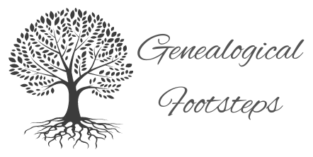Electoral registers in the UK offer a rich source of information for those interested in family history and broader societal trends. While these registers don’t reveal political affiliations, they do provide valuable insights into voter engagement and demographic information.
Key Takeaways
- Electoral registers in the UK are a valuable resource for genealogists and historians.
- The UK’s electoral registration process is governed by laws like the Representation of the People Act 1983.
- Electoral registers also collect demographic data such as age, gender, and ethnicity.
- Electoral registration varies in Scotland, Wales, and Northern Ireland due to devolved powers.
- The United States has a decentralised electoral registration system, making it more fragmented.
- Technological advances like biometrics are being incorporated into electoral rolls.
- Electoral registers have historical significance, offering insights into voter engagement and societal trends.
- Data privacy concerns arise with the digitisation of electoral rolls.
Understanding Electoral Registration in the UK
The Basics of Electoral Registration
Electoral registration in the UK serves as the foundational step in the democratic process, enabling citizens to exercise their right to vote. The system involves the meticulous collection and maintenance of a database that stores vital information on eligible voters. This database includes essential details such as name, address, age, and gender. The primary objective of maintaining these databases is to ensure that only eligible individuals can participate in elections, thereby upholding the integrity of the electoral process.
Legal Framework
The legal framework governing electoral registration in the UK is defined by various statutes, including the Representation of the People Act 1983 and subsequent amendments. These laws outline the eligibility criteria for voters, the responsibilities of Electoral Registration Officers, and the penalties for fraudulent registration. Understanding this legal context is crucial for researchers and genealogists who may need to navigate the system for historical data. I can into more detail about legal frameworks in the next section.
Demographic Data and Societal Trends
In addition to basic identification information, electoral registers in the UK also collect demographic data such as age, gender, and ethnicity. This rich dataset serves multiple purposes. For one, it allows for a nuanced understanding of voting behaviour across different societal groups. Research has indicated that younger voters in the UK are generally more progressive in their political leanings, while older voters tend to skew conservative. This kind of demographic analysis can be invaluable for historians studying societal trends over time.
Electoral Registration in Scotland, Wales, and Northern Ireland
It’s worth noting that electoral registration is a devolved matter in Scotland, Wales, and Northern Ireland, meaning that each has its own set of rules and regulations. For example, Scotland allows 16 and 17-year-olds to vote in Scottish Parliament and local elections, a feature not present in England and Wales. These regional variations can offer additional layers of complexity and interest for researchers.
Comparison with the United States
While the UK’s electoral registration system is centralised, the United States employs a decentralised approach, managed at the state level. This results in varying eligibility criteria, registration processes, and even methods of voting across the 50 states. For genealogists and historians, this means that electoral data in the U.S. can be more fragmented and challenging to navigate compared to the UK’s more uniform system.
Legal Framework Governing Electoral Registers
Understanding the legal framework governing electoral registers can provide valuable context for why certain data is collected and how it can be accessed. Electoral rolls serve multiple functions, including streamlining the voting process on election day and enabling authorities to detect electoral fraud. Voter registration is often a prerequisite for voting, and the electoral roll is used to verify an applicant’s identity and entitlement to vote. In some jurisdictions, the electoral roll is also used to indicate who has failed to vote, especially where voting is compulsory.
Legal Requirements for Voter Registration
In most jurisdictions, voter registration is a legal requirement for being listed on an electoral roll. For example, in the United Kingdom, the right to register for voting extends to all British, Irish, and Commonwealth citizens. The register is compiled for each polling district and is held by the electoral registration office. Failure to provide accurate information can result in a fine of up to £1,000.
Data Privacy and Accessibility
With the advent of technology, electoral rolls have transitioned from paper form to electronic formats. However, this raises questions about data privacy. In Australia, for instance, the electoral roll records just the name and address of the voter and cannot be sold in any format since July 21, 2004. This is a measure to balance the privacy of voters and the need for transparency in the electoral process.
Technological Advances in Electoral Rolls
Biometric technology is increasingly being adopted for electoral rolls. As of 2016, half of the countries in Africa and Latin America use biometric technology for their electoral rolls. This technological advancement aims to make the electoral process more secure but also opens up debates about data security and integrity.
Historical Significance of Electoral Registers
Electoral registers have been a crucial tool for historical research, allowing historians to examine shifts in voter engagement and societal trends. For example, electoral registers from the 19th century can offer insights into the social and political landscape of that era, even though many of the political entities from that time no longer exist.
Local and regional political movements have also left their imprint on electoral registers. By studying these records, researchers can understand the role these movements played in shaping political engagement during their time.
The 19th Century: The Age of Reform
The Reform Act of 1832
The Reform Act of 1832 was a watershed moment in British electoral history. It expanded the electorate by abolishing certain types of “rotten boroughs” and redistributing seats to reflect population changes. Electoral registers from this period show a significant increase in voter engagement, especially among the middle class.
The Ballot Act of 1872
The introduction of the secret ballot through the Ballot Act of 1872 was another significant reform. Electoral registers from this time reveal how this change impacted voter behavior, as it became less susceptible to coercion and bribery.
Early 20th Century: Women’s Suffrage and Beyond
Representation of the People Act 1918
The Representation of the People Act of 1918 was a monumental change, granting suffrage to women over the age of 30 who met certain property qualifications. Electoral registers from this period show a dramatic increase in the number of female voters, reflecting a shift in societal attitudes towards gender equality.
The Equal Franchise Act of 1928
This act extended the voting age for women to 21, the same as for men, effectively doubling the female electorate. Electoral registers from this era offer insights into how this change affected political campaigns and voter turnout.
Post-War Period: Universal Suffrage and Decolonisation
Representation of the People Act 1948
After World War II, the Representation of the People Act of 1948 abolished plural voting and university constituencies, moving closer to universal suffrage. Electoral registers from this period show a more diverse electorate, including increased participation from working-class individuals.
Decolonisation and Commonwealth Immigration
The post-war period also saw the decolonisation of many British territories. As a result, electoral registers began to include voters from Commonwealth countries, reflecting the changing demographics of the UK.
The U.S. Context: The Voting Rights Act of 1965
While the focus is mainly on the UK, it’s worth mentioning the Voting Rights Act of 1965 in the United States. This landmark legislation aimed to eliminate racial discrimination in voting. Electoral registers from this period in the U.S. show a significant increase in African American voter registration and participation.

Voter Engagement and Demographics
The Importance of Consistent Voting Behaviour
Consistent voting behaviour over multiple elections is often seen as an indicator of high political engagement. In the UK, where the electoral system is characterised by its “First Past the Post” mechanism, consistent voting can have significant implications. It not only reflects the voter’s commitment to civic duties but also can influence the political landscape over time. For instance, areas with high voter turnout are often given more attention by politicians, leading to better representation and resource allocation.
Methodologies for Studying Electoral Registers
Electoral registers serve as invaluable tools for researchers aiming to study long-term trends in voter engagement and societal shifts. These registers, maintained by local authorities in the UK, contain a wealth of demographic information such as age, gender, and sometimes ethnicity. Researchers often employ statistical methods to analyse this data, identifying patterns that can be indicative of broader societal trends.
Demographic Factors and Voting Behaviour
In the UK, demographic factors like age and gender have been shown to influence voting behaviour significantly. For example, younger voters in the UK are generally more progressive and are more likely to vote for parties like Labour or the Liberal Democrats. In contrast, older voters tend to be more conservative and are more likely to vote for the Conservative Party. This pattern is somewhat mirrored in the United States, where younger voters are generally more liberal, and older voters lean conservative.
Voter Engagement Across Time Periods
Studying electoral registers across different time periods can offer insights into how voter engagement has evolved. For example, the suffrage movements in the early 20th century led to a significant increase in voter engagement among women. More recently, events like Brexit have polarised the electorate, leading to increased voter turnout in specific demographics, particularly among older and low-income voters.
The Role of Technology
The advent of technology has also impacted voter engagement. In the UK, efforts are being made to digitise electoral registers, making it easier for researchers to access and analyse data. Similarly, social media platforms are playing an increasingly important role in mobilising younger demographics to vote.
Tracing Ancestors Through Electoral Registers
The Evolution of Electoral Registers in the UK
Electoral registers have been a part of the UK’s administrative framework since 1832. Updated annually, these registers list all individuals eligible and registered to vote in a particular area. Over the years, the information captured in these registers has evolved, sometimes including property details alongside basic demographic information. This makes them an essential resource for tracing your family tree or even the history of your house.
Types of Information Available
- Name: The most basic yet crucial piece of information.
- Address: Helps in geographically locating your ancestors.
- Age: Provides a temporal context.
- Occupation: Offers a glimpse into the social standing and lifestyle.
How to Access UK Electoral Registers
- Physical Archives: Many older electoral registers are stored in physical format and can be accessed in local libraries and national archives.
- Online Databases: Websites like FindMyPast offer digitised versions of electoral registers, making it easier to conduct research from the comfort of your home.
The U.S. Perspective
In the United States, voter registration records are also a valuable resource for genealogical research. However, the availability and type of information can vary by state. Unlike the UK, where electoral registers have been consistently maintained since the 19th century, U.S. records may not be as comprehensive.
Case Studies: Using Electoral Registers for Genealogical Research
- Tracing Property Ownership: Electoral registers often contain property details, which can be useful for understanding family assets over time.
- Understanding Migration Patterns: Changes in addresses over the years can indicate migration trends within the family.
- Age and Social Class: The inclusion of age and occupation can help researchers understand the social dynamics affecting their ancestors.
Limitations and Challenges
While electoral registers are a rich source of information, they come with limitations such as incomplete or inaccurate data. Moreover, some older records may only be available in physical archives, requiring an in-person visit for access.

Interpreting Electoral Data
The Importance of Contextual Understanding
Understanding the broader historical and social context is crucial when interpreting data from electoral registers. This is especially true in the United Kingdom, where electoral rolls have been maintained in various formats since the Representation of the People Act 1918. The data can be influenced by a myriad of factors, such as local issues, national events, and demographic shifts. For instance, the Brexit referendum had a significant impact on voter registration and turnout, reflecting the national sentiment at the time.
Local Issues and Their Impact
Local issues often play a significant role in voter registration and turnout. For example, a local housing crisis or a controversial development project could mobilise residents to register and vote. In the UK, the register is compiled for each polling district and held by the electoral registration office, usually located at the local council. This makes it easier to correlate local issues with changes in the electoral roll.
National Events: A Case Study of Brexit
National events can also have a sweeping impact on electoral data. The Brexit referendum is a prime example, where the issue not only polarised the nation but also led to a surge in voter registration. Understanding the timing of such events in relation to the electoral roll can offer additional layers of insight into the data.
Demographic Shifts and Their Influence
Demographic shifts, such as an influx of young voters or a change in the ethnic composition of a district, can also affect electoral data. In the United States, for example, demographic changes have been linked to shifts in voting patterns, especially in swing states. Similarly, in the UK, areas with a high concentration of university students often see a spike in voter registration at the start of the academic year.
The Role of Electoral Fraud Prevention
In both the UK and the US, voter registration serves as a mechanism to detect electoral fraud. Authorities can verify an applicant’s identity and entitlement to a vote, ensuring that a person doesn’t vote multiple times. This adds another layer of complexity when interpreting electoral data, as sudden changes could be indicative of either genuine voter interest or potential irregularities.
Limitations and Challenges
Electoral registers are a cornerstone in the realm of genealogical and historical research, especially in the United Kingdom. They offer a snapshot of who was eligible to vote at a particular time and place, providing valuable insights into the socio-political landscape of an era. However, like any historical source, electoral registers come with their own set of limitations and challenges that researchers must navigate.
Incomplete or Inaccurate Data
One of the most significant challenges is the potential for incomplete or inaccurate data. Electoral registers are not immune to human error, and mistakes can occur at various stages of data collection and recording. For instance, names may be misspelled, or addresses could be incorrect. This can be particularly problematic when trying to trace family histories or establish a comprehensive understanding of a community’s electoral participation.
Physical Archives and Accessibility
Another hurdle is the need to visit physical archives for non-digitised records. While many records have been digitised and are available online, a substantial number remain in physical form, stored in local or national archives. This can be a logistical challenge, especially for those who do not reside near these archives. The National Archives in the UK, for example, holds a vast collection of electoral registers (not complete collections, though), but accessing them may require a dedicated trip, which is not always feasible.
Temporal Gaps
Electoral registers are typically updated annually, but there may be years where records are missing or incomplete due to various reasons such as war, administrative changes, or natural disasters. These gaps can create challenges in constructing a continuous historical narrative.
Legal Restrictions
In some cases, there may be legal restrictions on accessing certain electoral registers, especially more recent ones, due to privacy concerns. This is more common in the United States, where privacy laws can limit the availability of such records to the public.
Interpretative Skills
Understanding these limitations is not just a procedural necessity but a crucial aspect of accurate interpretation. Researchers need to approach electoral registers with a critical eye, corroborating information with other primary or secondary sources when possible. This is particularly important for genealogists and historians who aim to construct a nuanced understanding of past events and relationships.

Ethical Considerations in Electoral Register Research
Data Privacy and Consent
One of the most pressing ethical considerations in electoral register research is the issue of data privacy and consent. Electoral registers often contain sensitive information such as names, addresses, and sometimes even demographic data like age and ethnicity. While this data is invaluable for research, it’s crucial to handle it with the utmost care to respect individuals’ privacy. Researchers must be aware of the legal frameworks governing data protection and should only use data that has been anonymised or for which explicit consent has been obtained.
Ethical Use of Demographic Data
Another ethical dimension is the use of demographic data, which can be sensitive and potentially divisive. For instance, using electoral data to make generalisations about voting behaviors based on ethnicity or age can be problematic. Researchers must approach such analyses with caution, ensuring that their work does not perpetuate stereotypes or biases. It’s also essential to be transparent about the limitations of the data and the scope of the research, so as not to mislead readers or policymakers.
Transparency and Accountability
Transparency in methodology and intent is another cornerstone of ethical research. Researchers should be clear about their research goals, the methods they’re using, and any potential conflicts of interest. This level of transparency not only adds credibility to the research but also allows for public scrutiny, which is an essential aspect of ethical academic work.
Methodologies for Electoral Register Research
Data Collection
The first step in electoral register research is data collection. Researchers often have access to both physical archives and digital databases. While physical archives offer a wealth of historical data, they may require special permissions and are often time-consuming to navigate. Digital databases, on the other hand, provide easier access but may lack the depth of historical records. Therefore, a hybrid approach that combines both sources is often recommended.
Data Validation
Once the data is collected, it’s crucial to validate its accuracy. This involves cross-referencing with other primary and secondary sources, such as census records or academic journals. Data validation ensures that the research findings are both reliable and replicable.
Analytical Tools and Techniques
Modern technology offers a range of analytical tools that can assist in electoral register research. Software like SPSS or R can be used for statistical analysis, while GIS (Geographic Information Systems) can help in mapping electoral districts and demographic data. These tools not only enhance the depth of the research but also its presentation and accessibility.
Ethical Considerations
Given that electoral registers often contain sensitive demographic information, ethical considerations are paramount. Researchers must adhere to data protection laws and ethical guidelines, ensuring that individual identities are anonymised and that the data is used solely for academic purposes.
Peer Review and Publication
Before the research findings are published, undergoing a peer review process adds an additional layer of validation. This is a standard practice in academic research and ensures that the methodologies employed stand up to scrutiny.
Utilising Technology for Research
The Digital Revolution in Genealogical Research
The advent of the digital age has revolutionised the way genealogists and historians approach electoral registers. Gone are the days when one had to physically visit archives and sift through voluminous paper records. Today, technology has made it easier than ever to access these valuable resources, opening up new avenues for research and data analysis.
Online Databases and Digitised Archives
In the UK, institutions like the British Library have partnered with platforms such as Ancestry and FindMyPast to digitise historical electoral registers. These databases offer a wealth of information, often going back to the early 19th century. For instance, the British Library’s collection is complete for England, Wales, Scotland, and Northern Ireland from 1947 onwards and is available for free in the Library’s reading rooms or to subscribers online.
Specialised Tools for Data Analysis
The digital age has also seen the development of specialised software tools designed to assist in the analysis of electoral data. These tools can help researchers identify patterns, trends, and anomalies, thereby enriching the quality of their research.
Cybersecurity Concerns
While the digitisation of electoral registers has made research more accessible, it has also raised concerns about data security. Recent cyberattacks on the UK’s electoral registers highlight the need for robust cybersecurity measures to protect this sensitive data source.
The U.S. Perspective
In the United States, similar advancements have been made in the digitisation of electoral registers. However, the decentralised nature of the U.S. electoral system means that records are often held at the state or even county level, making comprehensive research a bit more challenging.
The Future: AI and Machine Learning
Looking ahead, technologies like artificial intelligence (AI) and machine learning have the potential to further transform electoral register research. These technologies could automate the process of data extraction and analysis, making it even more efficient and accurate.

Future Trends and Implications
Technological Advancements and Data Accessibility
One of the most significant future trends in electoral registers is the increasing role of technology. As more records become digitised, the accessibility of these databases is expected to improve dramatically. This digital transformation will likely make it easier for researchers and genealogists to access a wealth of information without the need to visit physical archives. However, the ease of access also raises questions about data privacy and security. Researchers will need to be increasingly vigilant about ethical considerations when using this easily accessible data.
The Role of Big Data and Analytics
Big Data and analytics are set to revolutionise how electoral registers are studied. Advanced algorithms can sift through vast amounts of data to identify patterns and trends that were previously difficult to discern. For genealogists, this could mean more precise ways to trace family histories and voter behavior over generations. For historians, the use of analytics could provide deeper insights into societal shifts and the impact of specific policies or events on voter engagement.
Globalisation and Comparative Studies
As the world becomes more interconnected, there will be a growing interest in comparative studies involving electoral registers from different countries. This trend will offer researchers a broader perspective, allowing them to understand voter behavior and societal trends on a global scale. It will also enable genealogists to trace family histories across borders more efficiently.
Electoral Registers – The Last Word
Electoral registers serve as a valuable resource for both family history and broader historical research. Despite their limitations, they offer a unique window into societal trends and voter engagement. By effectively utilising these resources, researchers can gain a deeper understanding of both their family history and the societal shifts that have shaped the UK.
Additional Resources
Academic Journals
For those interested in a scholarly approach to electoral registers and their significance, academic journals are a treasure trove of information. Here are some recommended journals where you can find articles related to electoral registers:
- The Journal of British Studies: Focuses on British history and politics, including electoral systems.
- Political Science Quarterly: Offers articles that delve into the electoral systems and voter behavior.
- Public Opinion Quarterly: Provides insights into voter demographics and behavior.
Archives and Libraries
Primary sources are invaluable for any historical research. Here are some archives where you can find electoral registers and related documents:
- The National Archives, UK: Holds a vast collection of historical electoral registers.
- British Library: Another excellent source for historical electoral registers.
- Library of Congress, USA: For those interested in the U.S. perspective, this library offers a range of electoral registers and voting records.
Online Databases
The digital age has made it easier than ever to access historical documents. Here are some online databases that offer electoral registers:
- Ancestry.co.uk: Provides access to various electoral registers, especially useful for genealogists.
- Findmypast: Another excellent resource for family historians, offering a range of electoral registers.
FAQs
Q: What Are Electoral Registers?
A: Electoral registers are official lists that contain the names and addresses of eligible voters in a specific area.
Q: Why Are Electoral Registers Important for Genealogists?
A: Electoral registers can provide valuable information such as names, addresses, and sometimes even occupations, which can be crucial for tracing family history.
Q: How Are Electoral Registers Created?
A: Electoral registers are compiled by local authorities and are governed by laws like the Representation of the People Act 1983 in the UK.
Q: What Kind of Information Can I Find in Electoral Registers?
A: You can find names, addresses, and sometimes age, gender, and occupation. In some historical registers, property details may also be included.
Q: Are Electoral Registers Public Records?
A: Yes, electoral registers are generally considered public records, but access might be restricted due to privacy concerns.
Q: How Can I Access Electoral Registers for Genealogical Research?
A: Older electoral registers are often available in local libraries and national archives. Some have been digitized and can be accessed online through platforms like Findmypast.
Q: Do Electoral Registers Exist Outside the UK?
A: Yes, many countries maintain electoral registers, but the format and accessibility can vary. In the United States, for example, the system is decentralised and managed at the state level.
Q: What Are the Limitations of Using Electoral Registers for Research?
A: Electoral registers may contain incomplete or inaccurate data. Also, some older records may only be available in physical archives, requiring an in-person visit.
Q: Can Electoral Registers Help Me Understand Societal Trends?
A: Yes, electoral registers can offer insights into voter engagement and demographic shifts, which can be valuable for broader historical research.
Q: Are There Ethical Considerations When Using Electoral Registers?
A: Yes, it’s important to consider data privacy and consent, especially when dealing with more recent records or sensitive demographic information.
A Poem From Me To You…
Ancestral Ballot: Verses from the Electoral Register In pages crisp and yellowed, the ink still freshly speaks, Of voters from the days gone by, in cursive peaks and tweaks. They marked their X in columns, under parties long erased, In their local polling station, where history was embraced. A tapestry of surnames, a list of streets and lanes, The electoral register's treasure, often hidden but remains. For genealogists and seekers, each entry is a clue, A story part completed, old worlds to renew. Oh, what fascinating stories these lists can reveal, About who lived with whom, and what they might conceal. A passage to another time, where ancestors reside, And through this paper journey, with them, we do confide. So treat each name as sacred, for it’s more than just a word, It’s a whisper from the past, a voice that longs to be heard. To know your roots is to comprehend your family's vast ledger, Each ancestor a story told, through the lines of the electoral register.
References:
Parsing the UK electoral register cyberattack
COPYRIGHT NOTICE
Please be advised that all images, designs, and creative content on this page are the exclusive property of GenealogicalFootsteps.co.uk and are protected under international copyright laws. The images may not be reproduced, copied, transmitted or manipulated without the written permission of GenealogicalFootsteps.co.uk.
Unauthorised use, distribution, display, or creation of derivative works of any images contained on this page, is strictly prohibited and can lead to legal penalties. We actively monitor for, and enforce, our copyright interests. If you wish to use any of our images, kindly contact us to seek permission. Respect of copyright is not merely a legal requirement but also an acknowledgement and support of the hard work and creativity that goes into producing them.
Thank you for your understanding and cooperation.
© 2023, GenealogicalFootsteps.co.uk. All Rights Reserved.

My name is Anthony, the founder of Genealogical Footsteps. I have over 20 years of dedicated experience in family history and genealogy (although I am not a professional genealogist). I hold BA in history, and am considering further education (despite my age). My journey in genealogy has led me to remarkable discoveries and projects, particularly where my Cypriot genealogy is concerned. I am passionate about uncovering the stories behind names and have helped friends and family connect with their heritage, including those with Cypriot, Celtic, and Viking ancestry. Click here to read more about me.





